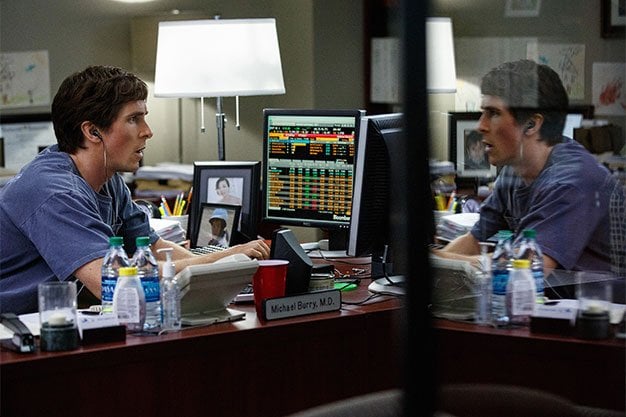
In Anchorman, Talladega Nights, Step Brothers and The Other Guys, Adam McKay and his Saturday Night Live buddy Will Ferrell showed us that smart guys can make great comedies about dumb people.
But in his new movie, The Big Short, McKay gets a little more serious, exploring the 2008 financial crisis through the eyes of a handful of smart, lucky people – played by the likes of Christian Bale, Steve Carell, Ryan Gosling and Brad Pitt – who saw it coming. And as he explains on a Toronto press stop, he does it without losing his sense of humour.
People are talking about this movie like it’s a huge departure for you. It’s like nobody noticed that the whole plot of The Other Guys is built around financial fraud.
As silly as our comedies are, Ferrell and I start with kind of a secret point of view that we bury in the middle of them. I think with The Other Guys and Anchorman II it got a little more overt, but there’s no question – with this one the subtext became the text.
The Big Short is unique among movies in that it doesn’t just cover the global financial meltdown of 2008 it actually bothers to explain the sub-prime mortgage debacle. And it turns out it’s fairly simple: bad securities were sold as good ones, destabilizing the banks and collapsing the market. How did you get it down to something that basic?
I just kept explaining it to people, and no one ever had a problem with it. “They had a bunch of mortgages, and they would sell them to pension funds, and then they ran out of good mortgages so they put shit mortgages in there, but they were still calling them Triple-A. It was a bunch of more shit.” And people would go, “That’s it?” And I’d go, “That’s it! And then they did other shit.” Like, it’s bullshit that we’re being told this is hard. That was kind of the central premise of the movie: it is bullshit that any news broadcast, that any pundit, isn’t explaining this. Because if I – a college dropout who did Step Brothers – can explain it as quickly as I just did to you, it’s really not hard.

This also marks your second massively complicated script this year. You and Paul Rudd rewrote Ant-Man for Marvel after the departure of original writer/director Edgar Wright.
I got a good two months with Rudd we holed up in a hotel room, and it turned out to be enough. There was enough good stuff in the original – even though we did a big rewrite – that it turned out okay. Big Short was definitely harder.
I can see that. For a movie like Ant-Man, at least there’s a kind of template. The Big Short really feels like something new.
My dad’s a musician, and I always ask him, “When you play with people, how do you know how to play that song they just started?” And he goes, “Eh, there’s like nine types of song. I know it’s a shuffle, and then they’ll do something a little different, and I pick that up.” And I think that’s kind of the way it is. In the case of Ant-Man, that was just pure fun: you know how those movies look and smell, so then you know how to fuck with them, which is half the fun. But, yeah, Big Short – very different shape. Very strange combination of elements. And you don’t see that very often. And then to get all these people willing to do it was just thrilling.
Oscar buzz
Best adapted screenplay seems like a sure thing, and Christian Bale could score a supporting actor slot if the same crowd that loved him in The Fighter gets behind him in this one. And the best-picture race can always use a dark horse with a point of view.












